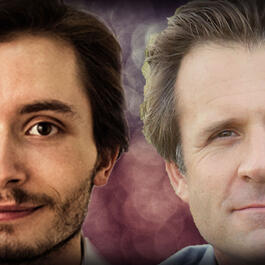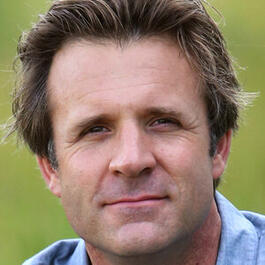
#358 Michael McCullough: The Kindness of Strangers
------------------Support the channel------------ Patreon: https://www.patreon.com/thedissenter SubscribeStar: https://www.subscribestar.com/the-dissenter PayPal: paypal.me/thedissenter PayPal Subscription 1 Dollar: https://tinyurl.com/yb3acuuy PayPal Subscription 3 Dollars: https://tinyurl.com/ybn6bg9l PayPal Subscription 5 Dollars: https://tinyurl.com/ycmr9gpz PayPal Subscription 10 Dollars: https://tinyurl.com/y9r3fc9m PayPal Subscription 20 Dollars: https://tinyurl.com/y95uvkao ------------------Follow me on--------------------- Facebook: https://www.facebook.com/thedissenteryt/ Twitter: https://twitter.com/TheDissenterYT Anchor (podcast): https://anchor.fm/thedissenter Dr. Michael McCullough is a professor of psychology at the University of California San Diego, where he directs the Evolution and Human Behavior Laboratory. Most of the research they conduct in the lab is focused on extending an evolutionary analysis to some of the key psychological features of human social life. He is the author of several books, including “Beyond Revenge: The Evolution of the Forgiveness Instinct,” and, the most recent one, “The Kindness of Strangers: How a Selfish Ape Invented a New Moral Code”. In this episode, we focus on Dr. McCullough’s new book, The Kindness of Strangers. We talk about the evolutionary bases of altruism, including kin selection, reciprocal altruism, indirect reciprocity, and group selection. We discuss how empathy works, and the people we tend to empathize and help the most. We then go through seven ages and eras that Dr. McCullough presents on the book as having influenced the cultural evolution of our altruism: the Age of Orphans, the Age of Compassion; the Age of Prevention, the First Poverty Enlightenment Era, the Humanitarian Big Bang, the Second Poverty Enlightenment, and the Age of Impact. In our current age, we focus on the role that the internet and social media play, and also on effective altruism. Finally, we talk about practical reasoning, and the issues we have to deal with in the future.
From "The Dissenter"




Comments
Add comment Feedback